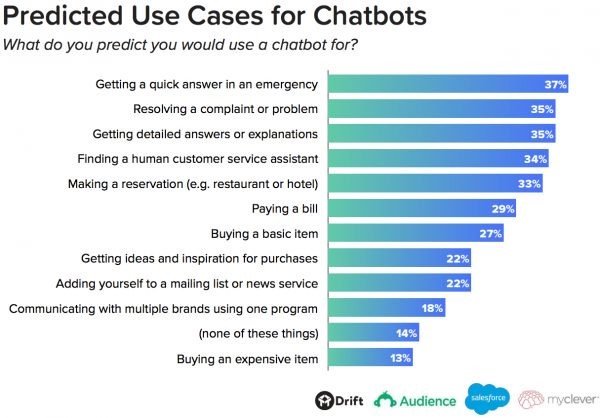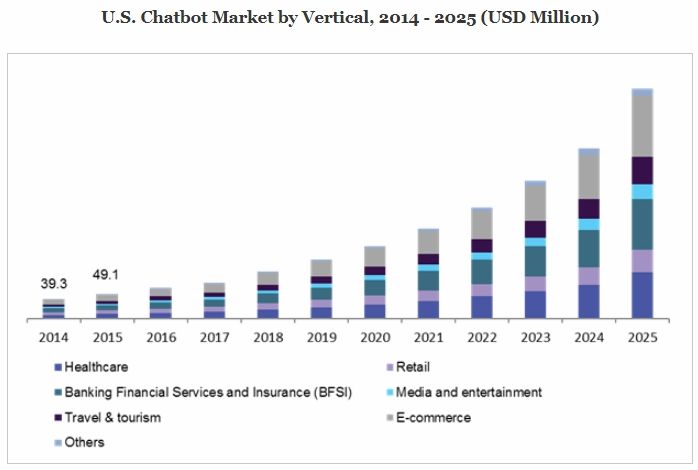If you consider chatbots just another marketing fad or buzzword with no impact on revenue, we have some bad news for you. Chatbots are an integral part of modern customer experience.
There are over 300,000 active chatbots on Facebook Messenger alone. But it's not all about Facebook. WhatsApp, Telegram, Viber, Twitter, or just regular website chatbots are growing in numbers by the minute.
In this article, we'll talk about the impact that chatbots can have on your conversion rate optimization efforts.
'Time Is Money'
That statement has never as much literal significance as it does now. The variety of products and services today, and the resulting competition, is astonishing. The Internet has brought all competitors together in one "place"; now, you have to face all of them.
In such an environment, getting the customer's attention and providing timely support is paramount to your success and your conversion rate metrics. That's where chatbots come in.
- They're available 24/7. Unless you have the cash to throw around, keeping a 24/7 live chat staff is a pretty costly endeavor.
- You often have less than a minute to engage a person and generate their interest. LeadConnect has found that your conversions can be almost 400% higher if you call a potential lead within the first minute. You can use a chatbot to achieve the same immediacy by triggering form fills. Or you could use a chatbot instead of form fills and forget about calls altogether.
- Chatbots can be used as a gateway to human interaction: Already, one-third of consumers are OK with using a chatbot before being transferred to a human operator. This allows you to set up the bot as a filtering system, where it responds to all of the basic questions, and only the users with the most pressing issues are escalated to real operators.
Better Customer Service = Better Conversions
Gartner predicts that by 2020 over half of all customer support interactions will be performed by bots. They're the ultimate customer support automation tool for various reasons: They're available 24/7/365, and they can be set up pretty quickly. Potential salary savings for companies using chatbots for customer care can reach almost 30%.
Chatbots can have a significant impact on many customer service routines:
- The speed of response is often considered one of the most impactful customer satisfaction metrics in customer care. Gen Z customers, who will account for 40% of consumers by 2020, are more likely to drop a brand because of slow response times. On the same note, 66% of Millennials expect real-time responses.
- Customers seek instant answers to the most basic and frequently asked questions—a fact that sits squarely within the narrative of the necessity of timely customer support. Fully 37% of customers are using chatbots mainly to get answers to those basic questions. They don't expect human-like communication in those situations; customers understand the purpose of chatbots and the limitations of their capabilities.
Choosing to completely automate your customer support is likely not a good idea. Chatbots aren't sophisticated enough to handle all of the customer interactions. But they can play well within an integrated customer support strategy that makes use of available technologies.
The benefits are obvious. Companies with better customer experience grow revenues 4-8% above their market average. The cost-savings noted earlier would provide a nice boost to your profit margins as well.
Augmenting Sales







